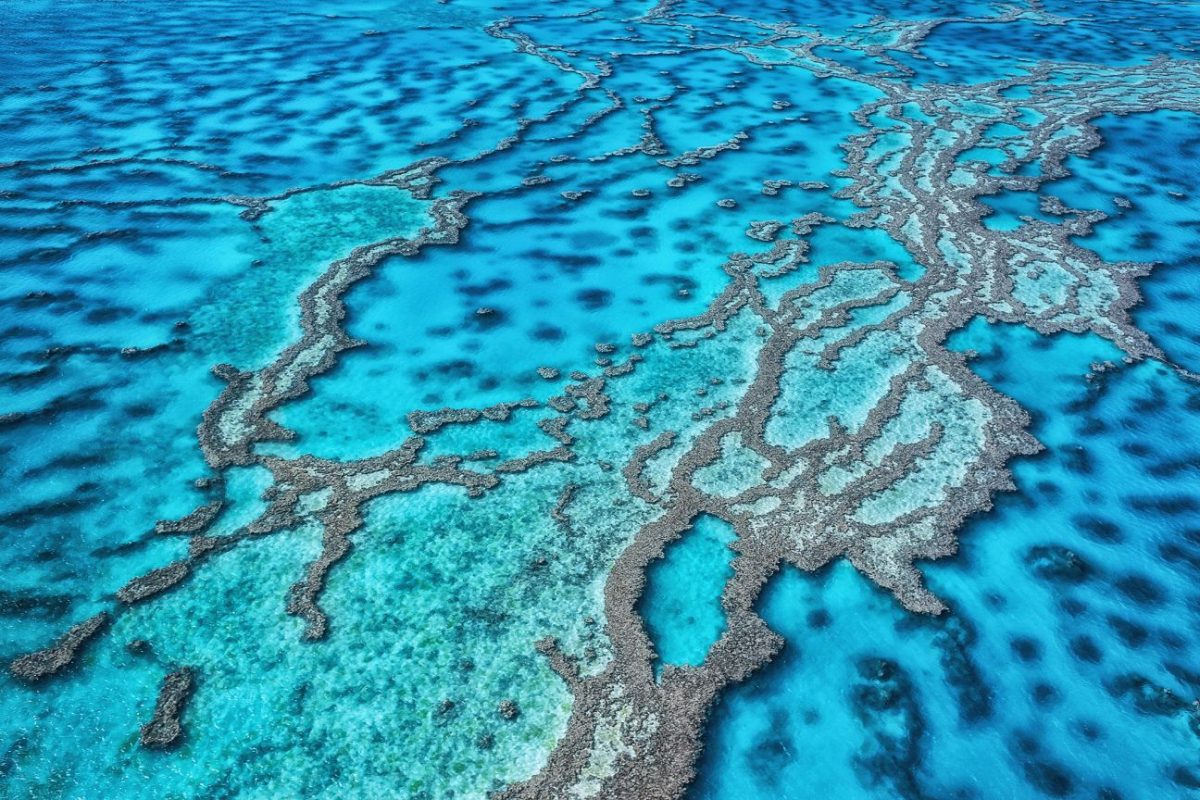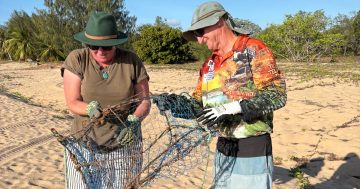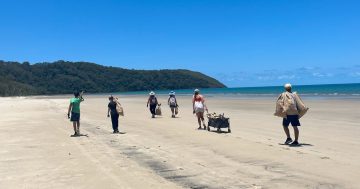
UNESCO recognised Australia’s efforts to phase out gillnet fishing and on improving the reef’s resilience but said more needed to be done on land clearing and water quality problems, and efforts to combat climate change. Photo: QLD Department of Environment and Science.
The United Nations Educational, Scientific and Cultural Organisation (UNESCO) has stopped short once again of putting the Great Barrier Reef on its endangered list, but says Australia needs to get serious on measures to save the world-heritage listed natural wonder.
In a draft decision set to be ratified by its World Heritage Committee at its session in New Delhi in July, UNESCO says, following the reef’s fifth mass bleaching event in eight years, Australia must pursue urgent and sustained action on key threats to the reef, and take greater action on climate change.
“The State Party should be urged to set more ambitious emission reduction targets consistent with limiting global temperature to 1.5 degrees Celsius above pre-industrial levels,” UNESCO said on 25 June.
“It is clear that the property remains under serious threat, and urgent and sustained action is of utmost priority in order to improve the resilience of the property in a rapidly changing climate.”
It said money spent on reef resilience had seen progress made in some areas, and praised the phasing out of gillnet fishing, but added tougher laws were needed to combat ongoing water quality problems, and that land clearing in reef catchment areas remained a major issue.
The Federal and Queensland governments welcomed the report, saying the draft decision recognises their continued efforts to make significant progress on climate change, water quality and sustainable fishing to protect the reef.
“Together with the Queensland Government, we are acting on climate change, improving local water quality, protecting our marine life, dealing with invasive species, and investing a record amount of money into reef programs,” Federal Minister for the Environment and Water Tanya Plibersek said.
“Today’s draft decision is a huge win for Queensland, a huge win for the thousands of people who rely on the reef for work, and a huge win for all the plants and animals that call it home.”
Queensland Premier Steven Miles echoed Ms Plibersek’s comments and took credit for protecting the reef from sea dumping in 2015 that prevented it from appearing on the in-danger list then.
“Together with the Australian Government, we have invested more than $1 billion to protect the reef, including committing close to $290 million to reduce sediment runoff and marine debris under the Queensland Reef Water Quality Program.
“However, this is not an area where we can afford to rest. We are committed to the ongoing protection of the reef, working alongside the science community, industry, conservationists, the community and UNESCO to ensure this great natural wonder can be enjoyed for generations to come.”
But the Climate Council said UNESCO’s report was a “red flag” on government inaction on the reef, and that Minister Plibersek claiming a win on the announcement was misleading.
“The Great Barrier Reef has bleached five times in the past nine years and suffered through its worst-ever heat stress earlier this year, when more than 80 per cent of reefs in the system endured dangerous levels of unnatural heating,” CEO Amanda McKenzie said.
“Every new coal and gas project adds harmful climate pollution into the atmosphere and further endangers the reef. The government must build upon their clean energy plans by also planning to phase out fossil fuels.”
Climate Councillor, former IPCC author and biologist, Professor Lesley Hughes, said the impact of climate pollution was driving the reef to the brink.
“Unless we act faster many other natural and human systems will tumble,” she said. “The implications of these changes are unimaginable.
“Australians love and treasure our oceans and the Great Barrier Reef. We understand its irreplaceable value and want to protect it for future generations to experience its wonder and beauty.”
The Australian Marine Conservation Society (AMCC) said UNESCO’s comments about climate change and other reef threats were sobering.
“They are clearly saying to Australia ‘your current target is not aligned with 1.5C’, and that’s what scientists have been saying,” AMCC campaigner Lissa Schindler said. “Their target is aligned with 2C, and that’s the end of coral reefs worldwide.”
“It’s pretty clear the Great Barrier Reef is under extreme pressure and UNESCO’s response echoes that, and the concerns of everyone around the world. The reef is in trouble.”








